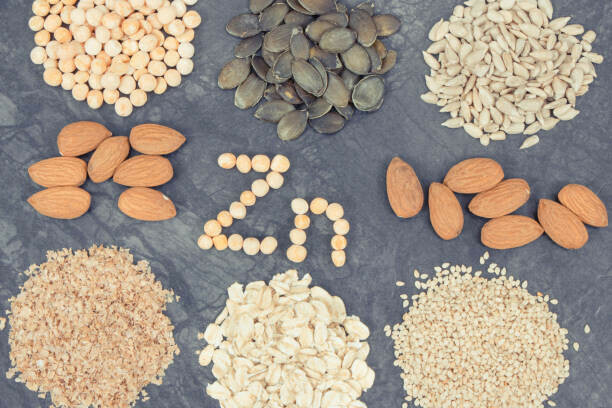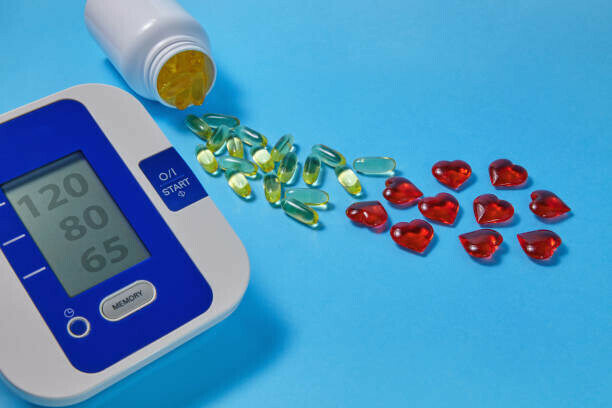Keeping our eyes healthy is crucial; our daily habits can significantly affect our vision. Vision issues can be caused by factors such as strain, inadequate nutrition, and not just aging. What we eat and how we live can commonly impact conditions like dry eyes, night blindness, and cataracts. Adding vitamins and supplements to our diet is not just a passing fad; it’s a reliable approach to caring for our eyes. Vitamins like A, C, and E, as well as minerals like Zinc, play a significant role in preserving healthy eyes and preventing vision problems.
It’s essential to highlight the importance of a well-rounded diet for eye health. While supplements are beneficial, they should not substitute for nutrient-rich foods. This includes leafy greens, vibrant fruits, and a variety of fish. In the next section, we’ll delve into specific vitamins and their effects on vision, giving you the knowledge to make informed decisions about your eye health.
Best Vitamins for Eyesight Improvement

Vitamin A is critical in supporting optimal vision, particularly in dim lighting conditions. Insufficient intake of Vitamin A can lead to night blindness and dry eyes, highlighting the importance of this essential nutrient. Spinach, sweet potatoes, carrots, and other leafy greens are packed with Vitamin A.
Vitamin C is critical in supporting the immune system and contributes to maintaining optimal eye health. As a powerful antioxidant, Vitamin C helps reduce the likelihood of developing cataracts and slowing the advancement of age-related macular degeneration (AMD), a prevalent condition in older individuals.

Vitamin C is a vital water-soluble vitamin that is essential for maintaining human health. It plays a critical role in supporting the growth and repair of various tissues in the body. Additionally, Vitamin C is integral to forming collagen, an essential protein necessary for skin health, cartilage, tendons, ligaments, and blood vessels. In addition, it serves as a powerful antioxidant, efficiently safeguarding the body’s cells against damage inflicted by detrimental free radicals. It can be found in various fruits and vegetables, including oranges, strawberries, kiwi, bell peppers, broccoli, and spinach. Citrus fruits like oranges, lemons, strawberries, and bell peppers are well-known sources of Vitamin C. In addition to well-known citrus fruits like oranges and grapefruits, there are other fruits rich in Vitamin C, such as kiwi, papaya, and guava.

Similarly, vegetables like broccoli and Brussels sprouts are also excellent sources of this vital vitamin. Including various vitamin-rich foods in your daily diet can significantly maintain overall eye health and support your immune system. Vitamin C, a potent antioxidant, can protect the eyes from age-related macular degeneration and cataracts while bolstering the body’s innate defense against infections.
Vitamin E provides robust antioxidant protection for the cells in your eyes, potentially delaying or preventing cataracts and AMD. Nuts, seeds, and spinach are all great sources of Vitamin E.

Zinc, a vital mineral, assists the body in absorbing Vitamin A and is crucial for maintaining good night vision and preventing AMD. Foods abundant in Zinc include meat, shellfish, legumes, and seeds.
OMEGA-3 FATTY ACIDS are great for maintaining good overall eye health, especially for the retina. They can decrease inflammation and are helpful for people experiencing dry eyes. Fatty fish, like salmon, mackerel, and sardines, contain significant Omega-3 fatty acids, specifically EPA (eicosapentaenoic acid) and DHA (docosahexaenoic acid). These fatty acids are crucial for general health and involve numerous bodily functions. Specifically, they are known for supporting heart health by reducing the risk of cardiovascular issues, lowering blood pressure, reducing triglycerides, and improving overall cholesterol levels.

Furthermore, anti-inflammatory effects have been linked to Omega-3 fatty acids, which could improve cognitive function and brain health. Additionally, they are crucial for brain health and development, aiding in cognitive function and potentially reducing the risk of neurological conditions. Consuming fatty fish regularly can contribute to overall well-being and long-term health. Consuming these fatty fish as part of a balanced diet can help lower triglycerides, reduce the risk of arrhythmias, decrease inflammation, and support overall cognitive function. Incorporating these nutritious fish into your regular meals can positively impact your overall well-being.
Key Nutrients for Comprehensive Eye Care
Lutein and Zeaxanthin, two kinds of carotenoid antioxidants, are recognized for blocking high-energy blue light. Preserving the eyes from the potential harm of blue light being emitted by electronic screens such as smartphones, computers, and tablets is reliant on these antioxidants. Lutein and Zeaxanthin assist in preserving sharp eyesight and could reduce the likelihood of age-related macular degeneration by absorbing surplus light energy and neutralizing free radicals.

Together, they act as a natural filter, helping to absorb some of the blue light before it reaches the light-sensitive structures in the back of the eye. This may aid in reducing the risk of eye strain and potential damage associated with long-term exposure to blue light from digital devices. These antioxidants help to filter out high-energy blue light and may contribute to maintaining healthy vision in the digital age. These beneficial carotenoids can be found in leafy green vegetables such as kale, spinach, and eggs. They safeguard the retina and enhance overall visual function.
Beta-carotene is a precursor to Vitamin A and is present in colorful vegetables like carrots, sweet potatoes, and butternut squash. Regularly consuming these vegetables can help boost your body’s Vitamin A reserves, which are crucial for maintaining good vision.

Bilberry has long been praised for its beneficial effects on night vision and overall eye health. Small in size but mighty in benefits, these dark berries are rich in antioxidants, particularly anthocyanins. Research has demonstrated that these compounds can enhance blood flow to the eyes and shield against cellular damage, making them a fantastic choice for supporting eye health. This can contribute to better visual acuity, especially in low-light conditions, and support long-term eye health.
Flavonoids are compounds that enhance the antioxidant properties of Vitamin C. You can obtain your dose of flavonoids from foods such as berries, onions, and tea. They play a role in protecting your eyes from oxidative stress and inflammation.
Natural Supplements for Eye Health
Tailored multivitamins for eye health can be a convenient way to ensure you get a well-rounded supply of necessary nutrients. These may contain a combination of vitamins A, C, E, zinc, and other crucial elements that promote vision support.

Ginkgo biloba, an herbal supplement, is frequently lauded for its potential advantages for eye health. This plant can enhance blood circulation, essential for keeping eyes healthy and preventing retinal problems.
Research has shown that Omega-3 fatty acids, abundantly found in fish oil supplements, play a crucial role in promoting eye health. These essential fatty acids are beneficial for easing dry eye symptoms and decreasing eye inflammation. Incorporating Omega-3 fatty acids in your diet or supplements can support general eye health and reduce discomfort. If you prefer something other than fish, these supplements can be a fantastic substitute.
Eye health blends are supplements formulated to deliver a mix of beneficial nutrients at once. They can encompass everything from lutein and zeaxanthin to bilberry and flavonoids. These blends simplify addressing all your needs without managing multiple individual supplements.
Lifestyle Tips for Maximizing Eye Health Benefits

Your diet has a significant impact on your eyes’ health. When planning your meals, make sure to include foods that are packed with nutrients, such as leafy greens, vibrant fruits, and fatty fish. These foods supply the essential vitamins and minerals needed to keep your eyes healthy and strong.
Remember to schedule routine eye check-ups, even if you believe your eyesight is flawless. These tests can help detect problems early, enabling you to maintain good eye health.
While digital screens are crucial to our daily lives, they can hurt our eyes. Remember following the 20-20-20 rule: every 20 minutes, pause for 20 seconds to concentrate on something 20 feet away. Adhering to this simple guideline can substantially reduce eye strain.

Remember the importance of protecting your eyes from UV rays. Sunglasses do more than make a fashion statement. They safeguard your eyes from harmful ultraviolet rays, which can lead to cataracts and other eye-related issues.
Engaging in physical activity and adopting good habits can also yield favorable results. Basic eye workouts, like concentrating on objects at varying distances or shifting your gaze in different ways, can enhance flexibility and fortitude. Furthermore, ensuring adequate sleep and staying well-hydrated are uncomplicated methods to maintain the health of your eyes.
Thank you for reading my article about “Best Vitamins For Eyesight Improvement”, and I would love to receive your comments down below, in case of any.

